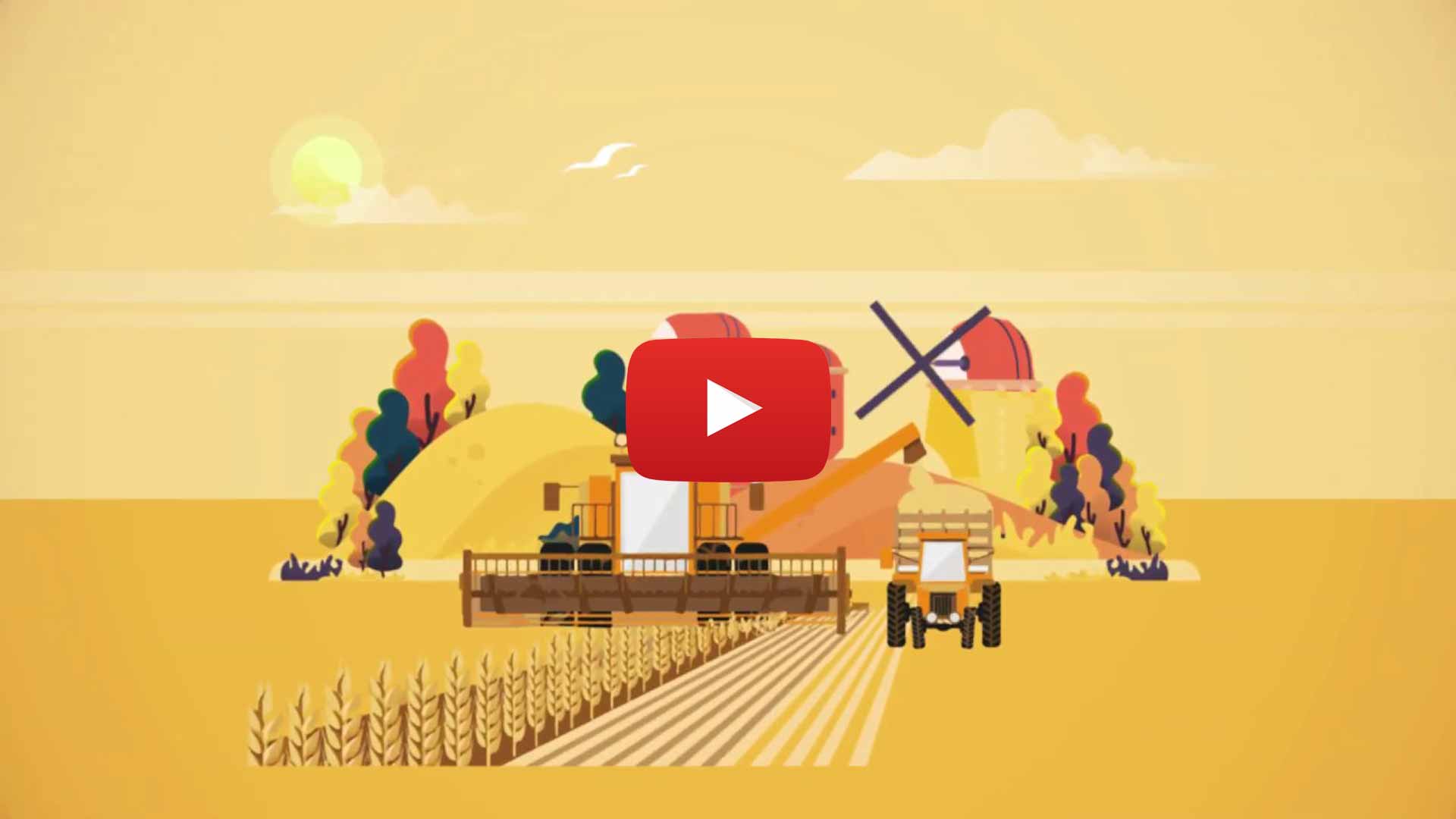The Lebanese government announced the “effective implementation” of its new wheat subsidy program last week, touting the program, financed through a US$150 million loan from the World Bank, as its response to the country’s expanding food security crisis. The reality, however, is that Lebanese citizens have likely once again been saddled with a public policy initiative characterized by short-term thinking, unnecessary costs, inefficiency, inequity, and abundant opportunities for graft.
There is no doubt that the food security crisis in Lebanon is intensifying and needs to be addressed. Earlier this month, the international non-governmental organization Save the Children projected that there will be a 14 percent increase in the number of children facing crisis levels of hunger in the country this year. This followed a United Nations agency report in December estimating that those in Lebanon, both Lebanese and Syrian, facing food insecurity severe enough to require urgent humanitarian action will rise from 1.98 million to 2.26 million by April 2023, or from 37% to 42% of the population.
The new wheat subsidy program, dubbed the Lebanon Wheat Supply Emergency Response Project, is ill-suited for addressing this crisis. To begin with, its implementation comes nearly a year late in terms of addressing the situation it was originally intended for: facilitating Lebanon’s continued wheat imports amid global price shocks resulting from the February 2022 Russian invasion of Ukraine. The accompanying blockade of Ukrainian ports halted that country’s wheat exports, which had supplied Lebanon with more than 70% of its wheat imports in 2021. In May last year, the World Bank approved the US$150 million loan to help Lebanon subsidize resourced wheat imports, but the Lebanese parliament only passed the legislation necessary to implement the deal, Law No. 304, in October. Meanwhile, global wheat prices had begun receding in June and, thanks in large part to a UN brokered deal in July that allowed Ukrainian wheat to return to the market, global prices are today within the same range as they were prior to the Russian invasion.
Even had the wheat subsidy been implemented in a timely manner, it is unclear whether it would have had the desired effect. Lebanon saw severe shortages of Arabic bread in the summer of 2022, which the caretaker Minister of Economy and Trade Amin Salam, flour mill representatives and the bakeries syndicate blame on various factors, mostly each other. Oddly, however, a point they seemed to agree on is that the war in Ukraine was not the cause. Salam, speaking recently to The Alternative, reiterated that supply was not a problem last summer but that the shortage came about due to bakeries diverting subsidized wheat to make high-profit products such as pizzas and pastries, instead of Arabic bread, which is subject to retail price controls. He also blamed unscrupulous private sector players, including “a few bad mills”, for smuggling subsidized wheat to Syria. The shortage ended, according to Salam, once a security committee was established to monitor bakeries and flour deliveries.
CEO of Crown Flour Mills Paul Mansour also told The Alternative that the Ukraine conflict did not impact Lebanon’s access to wheat imports. The syndicates for both the mills and the bakeries claimed that Banque du Liban’s (BDL) subsidy procedures took an inordinate amount of time, delaying deliveries and thus playing a major role in the summer shortages.
Costly, inefficient, inequitable, and graft-prone short termism.
Lebanon has for decades ran a substantial balance of trade deficit, importing most of the products its population consumes. In the face of the country’s spiraling economic and financial collapse since October 2019, which has seen the value of the Lebanese lira lose more than 97% of its value in just over three years, the central bank implemented import subsidies programs for items such as fuel, medicine, and basic commodities. At its peak this was costing the BDL some US$500 million per month, with half of this amount estimated to have been directed towards fuel subsidies alone. These figures are only estimates, however, given that the BDL maintained an almost zero-transparency policy regarding how it spent the country’s foreign currency reserves. By 2021, having burned through most of Lebanon’s savings, the BDL began to roll back its subsidies, following which market prices jumped.
The subsidy programs were thus shown to be extremely costly short-term measures that left Lebanon worse off for them having been undertaken, being that they left the country billions of dollars poorer and no closer to resolving any of its multipronged crises. The benefits of the subsidies program have also been highly skewed towards the affluent, given their ability to purchase more subsidized products. UNICEF has estimated that 80% percent of the subsidies went towards the top half of the income distribution. Reports of security forces arresting people smuggling subsidized products out of the Lebanon suggests further leakages of the subsidies’ benefits.
Salam conceded that smuggling and profiteering will continue to be risks under the new wheat subsidy program. If such is the case, and if the minister is correct that the bread shortages last summer were due to corruption rather than supply shortages, why not request World Bank assistance to enhance market monitoring and policing?
The vagaries on the subsidy legislation, Law No. 304, will also, at best, complicate implementation and create inefficiencies, and at worst create spouts for funds to be syphoned off. For instance, while the Ministry of Economy and Trade is to finance the total purchase amount for wheat deliveries on behalf of importers, it is not clear if this is meant to be carried out through a department in the ministry or the BDL. While wheat importers are required to reimburse the ministry for a portion of these costs, the amount, the currency, the specific recipient and the payment process are left unclear. Ambiguity in the currency and handler of other credits and transactions also appears to leave opportunity or leakage.
The World Bank declined an interview with The Alternative, but in an email response to questions stated that “the project contains multiple layers of mitigation measures to address the risk of mismanagement of funds.” The World Bank added that these include third-party project monitoring, regular financial audits, and World Bank supervision of project procurements and implementation, “as well as strengthening of the Government’s capacities to ensure sector oversight and improve transparency.” However, the project’s implementation and staff allocation remain solely in the hands of the Ministry of Economy and Trade.
With the risks many and the potential benefits limited, the logic for taking on new debt to fund this wheat subsidy begins to feel frayed. Some 90 percent of the US$150 million World Bank loan is also on non-concessional terms with a variable interest rate. In a global environment of rising interest rates, the Lebanese taxpayer is thus potentially exposed to hefty long-term costs associated with the loan.
Had even a fraction of the billions the BDL blew on subsidies since 2019 been directed towards desperately needed reforms and investment in Lebanon’s own agricultural sector, by now the country may have been able to take some substantive steps towards building domestic food security resilience. This kind of long-term thinking appears to be nowhere on the horizon.
The World Bank loan is meant to “keep bread accessible until we can fix storage capacity and get the economic situation under control,” said Minister Salam to The Alternative, adding that, “based on how well we do, we have a chance to either renew the program or extend it to a larger program.” The minister told The Alternative that there has been conversation with the World Bank about either extending the existing program or shifting to a cash transfer “smart card” system for bread, similar to Egypt’s. In either case, the government aims to continue relying on the World Bank to fund short-term, piecemeal programs instead of funding sustainable solutions to ensuring food security and equitable access to basic commodities.
Editor’s note: The Alternative would like to thank Amanda Haydar for contributing in reporting.



